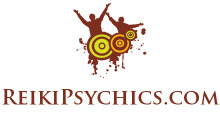Reiki is a Japanese therapy to reduce stress. It is a spiritual healing for energy with roots from Japan. The word “rei” is formed of two Japanese words – Rei means “universal” and Ki means “life energy”. So Reiki means “universal life energy”
Human body is surrounded by a field of invisible vibrations that have the power to enhance the general well-being.
Negative thoughts and feelings cause the negative energy such as stress, anxiety, physical pain, sadness, confusion, etc. which affect the energy field around the body. Reiki help heal and clarify the energy pathways.
There is no set protocol or length of time in a typical Reiki session. Reiki can be administered by anyone with appropriate training, who could be a professional practitioner, a healthcare provider, a friend or family member, or even yourself. Reiki can be administered to a fully clothed recipient who is lying on a treatment table or sitting comfortably, and the treatment can be done by anyone with appropriate training, who could be a professional practitioner, a healthcare provider, a friend or family member, or even you yourself if you have the appropriate Reiki training.
 Reiki can be done at any quiet place. The practitioner frequently plays soft music during the session, but you can tell your practitioner if you prefer silence.
Reiki can be done at any quiet place. The practitioner frequently plays soft music during the session, but you can tell your practitioner if you prefer silence.
Reiki is offered through by placing practitioner’s hands lightly on or over specific areas of the head, limbs, and torso using different hand shapes, for between 2 and 5 minutes. The hands can be placed over 20 different areas of your body. The hands’ placement should never be intrusive or inappropriate. If the recipient has any particular injury, such as a burn, the hands may be placed just above the wound.
Although people typically feel refreshed after a Reiki session, sometimes they may feel more tired than usual in the evening. However, this is normal as a natural healing response. People commonly sense calmness and mental clarity and sleeping well after Reiki.
Your practitioner may recommend you 4 sessions as a traditional recommendation and will give you time to evaluate what benefits you are receiving.
Let the practitioner know your needs before starting the session. For example, if you have trouble breathing or if you are lying uncomfortably. Or mention if you have any surgery’s scars and don’t want to be touched where the scar is still tender. Also, inform your practitioner if you are pregnant or have digestive complaints.
As the session proceeds, you will feel more relaxed. Let the practitioner know if you feel uncomfortable to adjust your position. Make sure to ask for anything that will add to your comfort, such as additional pillow under your knees or a blanket. This is your special time and your reiki’s practitioner is there to help you.

